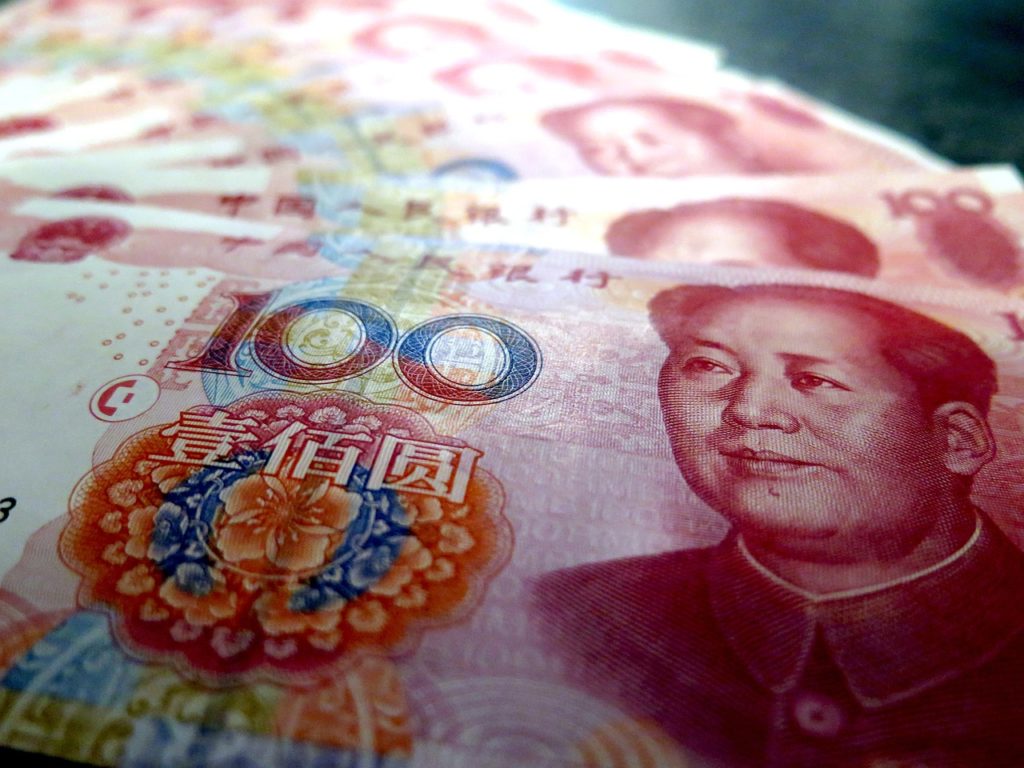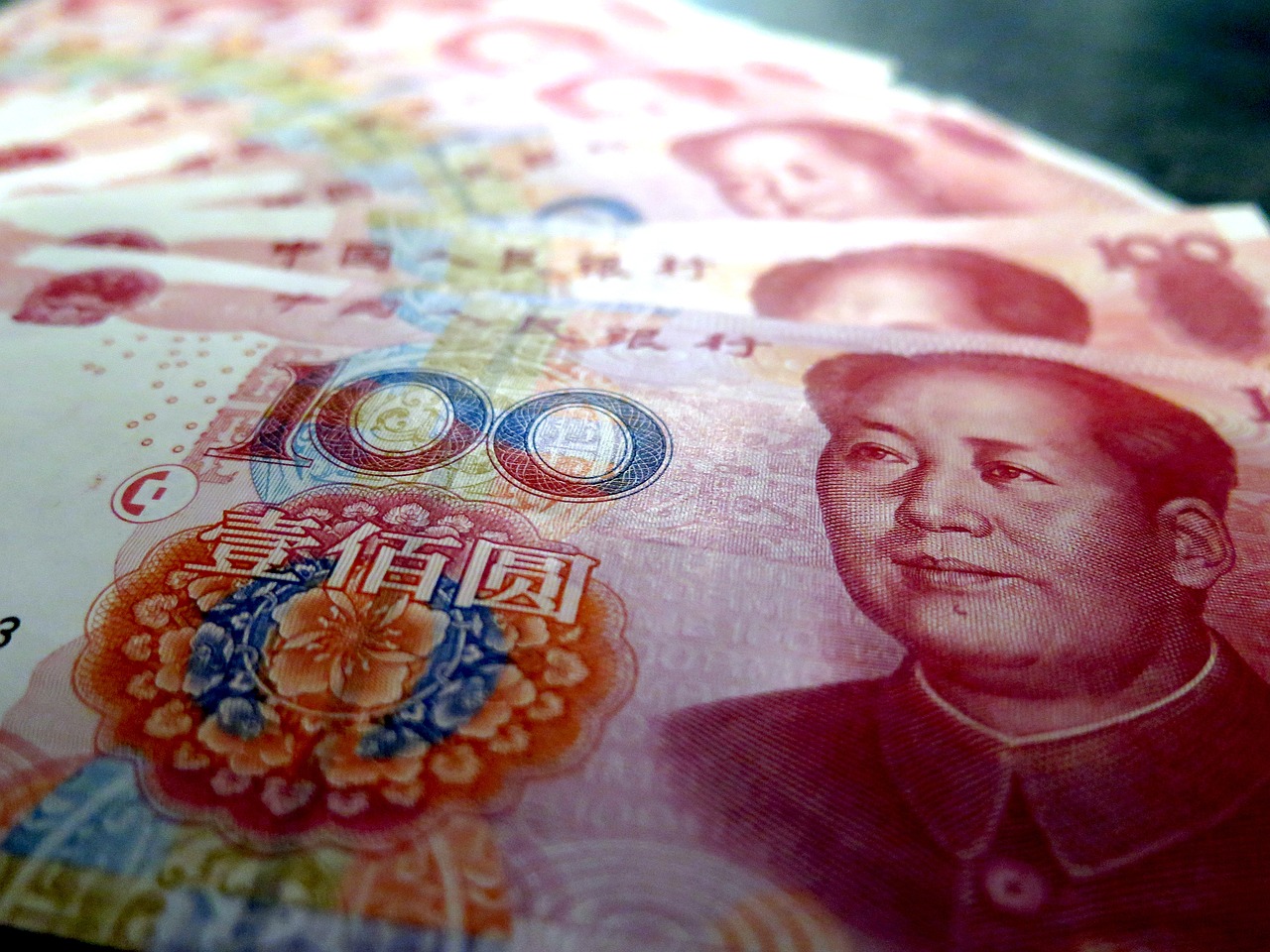Fears of a global trade war have been heating up in recent weeks…
We’ve seen a cycle of the U.S. announcing tariffs and investment restrictions on Chinese products… China responding with tariffs on U.S. products… and the U.S. threatening more tariffs. (We’ve written about the escalating trade war tensions between the U.S. and China before, here, here and here.)
Big Bank Warns Of Danger In A "World Without Risk"
Q1 hedge fund letters, conference, scoops etc

Markets are understandably nervous as the possible winners and losers of tariff skirmishes are being identified. And whatever happens, we all know that there will be unintended consequences from these tariffs. That’s why we’re seeing renewed bouts of market volatility.
So should you be worried about a trade war? Here are my thoughts on the subject….
Long term, these trade war concerns will be little more than a piece of history.
Now, I’m not saying we won’t see any fallout in the near term from these skirmishes. We’re already seeing market volatility. And as I said, there will be winners and losers. But long term, I’m not worried.
For starters, there is no strong body of support on either side of the political fence in the U.S. (or globally for that matter) for the sort of trade war that is being whipped up around U.S. President Donald Trump’s tweets and policy outpourings.
Paul Singer Sees European Union Disintegration, Brexit Just The Start
Everyone knows that the net effect of an all-out, wide ranging trade war will be way more negative for a broad range of society than the positive effects for a small group of beneficiaries. The most obvious is that many companies will lose business – sales will fall, costs will rise and profits will tumble. Costs for consumers of anything caught up in the trade war net will rise. Inflation will be pushed higher, in an environment of mediocre growth and rising interest rates. That will put downward pressure on wages and salaries at a time of rising costs. Hardly a great outcome for people just about everywhere.
Trump has a point
That said, Trump has some valid points…
The reality is that China does NOT play by the rules on a level playing field. For years, I have watched and listened to all manner of business people that I work with or come across complain about China’s underhand restrictions and rules that favour its own domestic champions in just about any industry – from traditional smokestack industries, to chemicals, machine tools, autos, technology, services, financial services – you name it. This is not new. It has been going on for years. The European business community in China has probably been more outspoken about these practices and complaints in China than even the U.S. business community.
And complaints of China’s theft of intellectual property (IP) and forced sharing of technology and IP have considerable substance. It is true. Any number of companies can cite their own experiences on this thorny issue.
The Trump administration is bringing this all to a head, and pressuring China to address these problems. Quiet mutterings behind closed doors by trade bodies and individual companies is to be replaced by loud, very public action.
So while no one wants a trade war, a great many companies quietly agree with measures that might hopefully lead to a more level playing field for business in China and an end to vast theft of IP.
Global Growth Has Peaked, We Are In A “Dangerous New Phase”
Turning to China…
From what we see coming out of the top levels of China’s leadership in the past few weeks, we should be reasonably encouraged that some of the targets of these complaints are programmed for change.
When we think about it, China’s economy 40 years ago was an almost totally closed black box. Foreign business simply did not and could not operate in China. The economic opening up of the country that began in earnest in the early 1980s has been nothing short of phenomenal. But is has never been a “Big Bang” revolutionary process. It has always been evolutionary. Slow, step-by-step progress. Each step along the way has been taken very deliberately, often with small baby steps… experimental moves.
As the impacts of policy changes become clearer, the policies are applied more widely across the country and across industries, amended on the back of experience and refined as they go along.
So I am confident that current pressures on China will lead to reforms, which will be enacted over the coming year or two.
The benefits of an autocracy like China’s is that these policies do not have to get passed through fractious houses of parliament, congress and senate bodies. Once the commitment is made at the highest policy level, bodies are charged with getting on with it and getting it done.
It seems to me that China’s leadership knows that it increasingly needs to have access to global markets, not just for manufactured consumer goods, but for higher value products and services. It also realises that it has operated on a playing field that is far from level and is being brought to task on this.
For example, China has just restructured and empowered the State Intellectual Property Office to come down on violations of intellectual property rules. And commitments have been made to lift the foreign ownership restrictions on the car industry. Promises have also been made to reduce tariffs on foreign car imports.
China’s own companies have also developed intellectual property in both goods and services that they need to export. These companies also need to enjoy the protections that are standard stuff in the developed world. So China has a huge vested interest in signing on to the global IP protection rules framework.
If it continues with its own brands of protectionism, it cannot expect to be permitted to gain access to global markets.
There is a very strong chance that the pressure on China from the U.S. and other sources to level the trade and investment playing field will help accelerate the ongoing reform process in China. It is giving China the moral high ground in claiming it is defending the principles of free trade and multilaerlaism and therefore a face-saving device for its leadership.
So while I do think we’ll see some trade skirmishes between the U.S. and China in the weeks and months I believe China will eventually accede to trade requirements as part of its long-running reform and economic opening up process.
Good investing,
Peter Churchouse
Related Articles:
- What this scary “What if?” would mean for Asia: President Trump
- In case you missed it… now the U.S.-China trade war is heating up
- Get ready for the U.S.-China trade war
Article by Stansberry Churchouse

